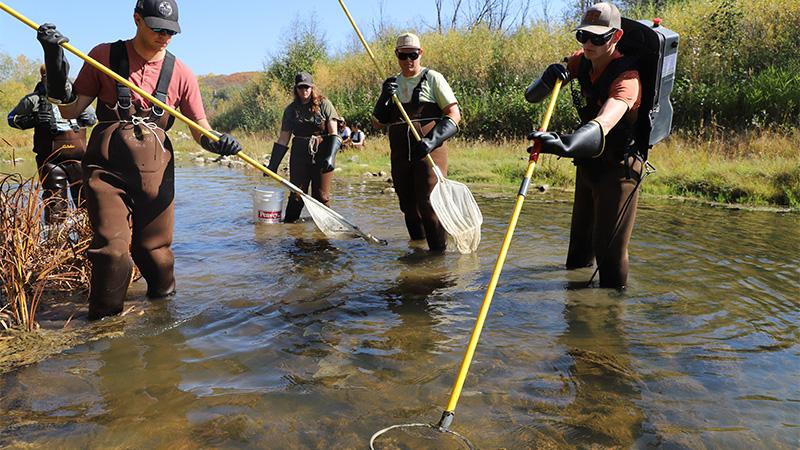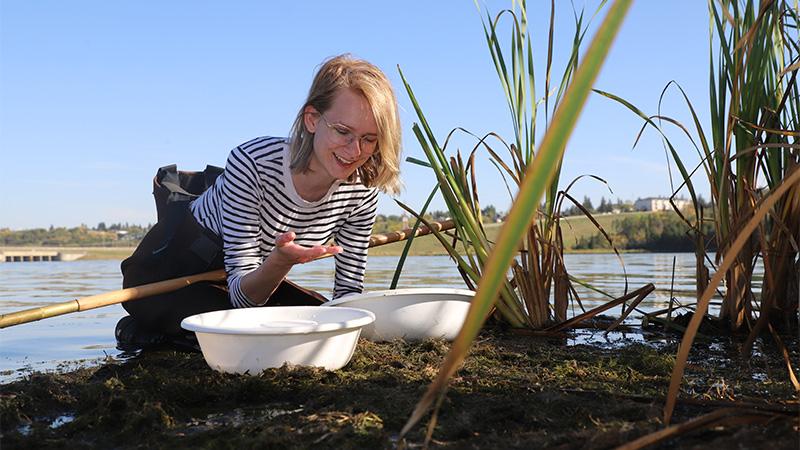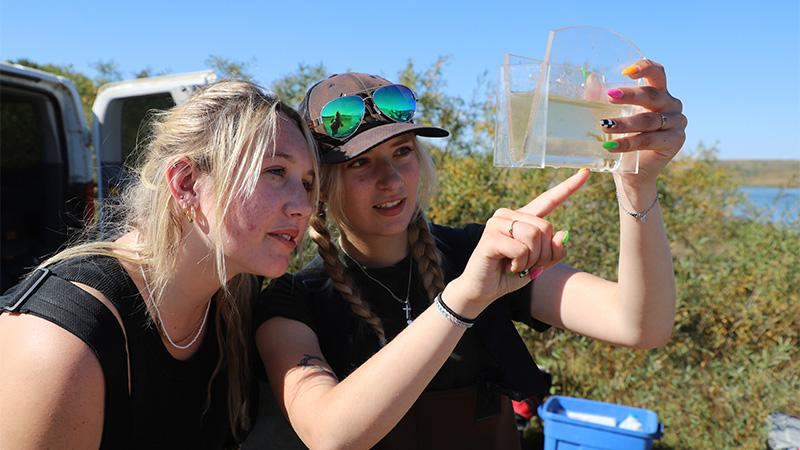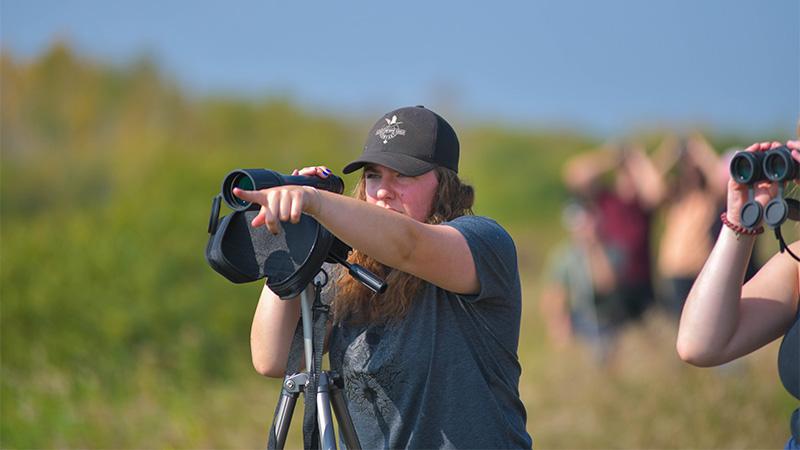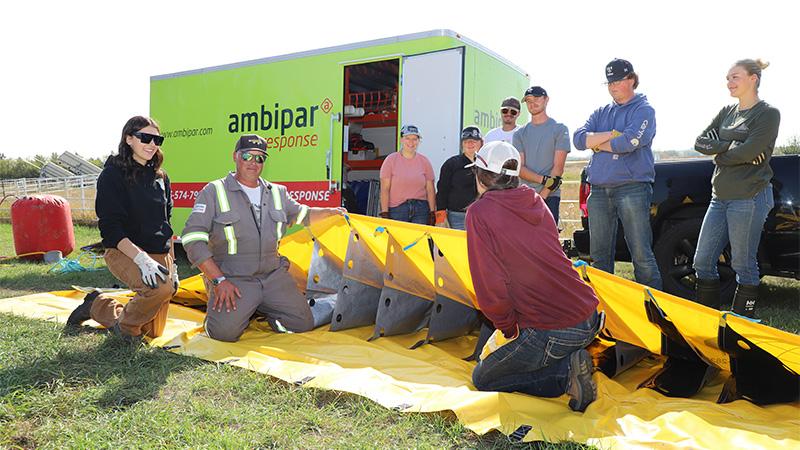For environmental sciences students at Lakeland College, Field Week isn’t just a break from the classroom — it’s an immersive, boots-on-the-ground experience that brings theory to life. Over the course of one packed week, students find themselves bird banding at dawn, touring active mines, conducting site assessments, identifying fish, wildlife and plants, and overseeing prescribed fire burns.
For second-year student Rosemary Thompson, this kind of hands-on experience was specifically why she chose to attend Lakeland for her environmental sciences education.
“I’ve always been the type of person to think that the environment should be a safe place that we should maintain,” she says. “The hands-on part of Lakeland is my favourite. You learn things that you wouldn’t learn in the classroom.”
Thompson, a wildlife and fisheries conservation major, spent part of Field Week at the BeaverHill Bird Observatory just outside of Edmonton, assisting the biologists there with bird banding to track the migration of songbirds. It was a highlight of her experience.
“I’ve always been interested in animals and bugs,” she explains. “That’s why I decided to take environmental sciences. Field Week was amazing and the birds were definitely my favourite part. I loved being able to watch them being handled and learning about the warbler population in our area.”
This year’s Field Week included a visit to the bird observatory as well as fish identification labs, trap baiting and checking, chainsaw and ATV training, prescribed fire burns, tours of the Keephills Mine and more. Students in the bachelor of applied science: environmental management program spent the week doing hands-on labs in Kananaskis.
The final day of Field Week was sponsored by Ambipar Response, who were on site with equipment used in spill response, sharing stories of their experiences in the field and job opportunities.
While Field Week is an annual highlight in the environmental sciences program, it’s far from the only time students get outside — frequent labs throughout the year ensure that environmental science at Lakeland is always rooted in the land. That experiential learning is what draws students to the program, as well as employers looking for new hires.
“Many companies look to hire Lakeland students because we already have some of those field skills,” Thompson says. “They don’t have to teach us how to use a gill net, for example. We’ve already done it. It’s important to hire people with that kind of experience, so that will really help us with jobs in the future.”
Photos: Various labs from Field Week 2025.
